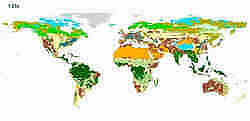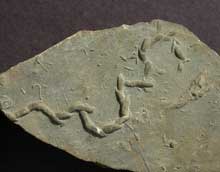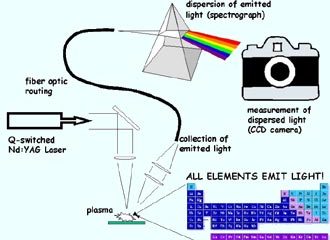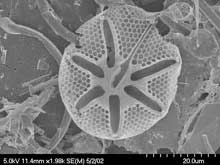
While many scientists and policy makers have focused only on how heat-trapping gases like carbon dioxide are altering our global climate, a new NASA-funded study points to the importance of also including human-caused land-use changes as a major factor contributing to climate change.
Land surface changes, like urban sprawl, deforestation and reforestation, and agricultural and irrigation practices strongly affect regional surface temperatures, precipitation and larger-scale atmospheric cir

Study suggests macroscopic bilaterian animals did not appear until 555 million years ago
The traces left behind by ancient animals may hold the key to determining when macroscopic bilaterians — animals that are symmetric about a central axis, with a body divided into equivalent right and left halves, and with an anterior-posterior polarity (e.g., this includes worms, ants, and ranging up to humans) — first appeared. A team led by Dr. Mary Droser, professor of geology at the Univers
One of the known facts about landfalling hurricanes is their rapid decay, yet some of them retain tropical storm winds and gusts well inland. While studies have shown that the reduction in surface evaporation is a reason for hurricane decay during landfall, little is known about the effect of land surface water on the intensity of hurricanes.
In a recent issue of the Journal of Atmospheric Sciences, URI Graduate School of Oceanography (GSO) physical oceanographer Isaac Ginis, Weixing Shen, f

Instant detection for chemicals, explosives, and biohazards
A little over a year after September 11, a laser technique is lighting a new path to homeland security. In recent Army laboratory research, this technique instantly detected and identified various explosives.
Preliminary results indicate that it can also tell the difference between several close relatives of anthrax.
Recent breakthroughs now let it detect any known substance, at least in theory. The laser t

Why live in a glass house? For diatoms — tiny ocean-dwelling organisms that live in exquisitely ornate glass cases — the benefit turns out to be enormous.
In a paper published in the Sept. 13 issue of Science, Princeton scientists show that diatoms probably depend on glass to survive because the material facilitates photosynthesis. However, their study suggests that this domestic arrangement has a much bigger beneficiary: the entire planet, which owes its present-day, oxygen-rich and carbo
Frustrated by the limitations of present numerical models that simulate how Earth’s climate will be altered by factors such as pollution and landscape modification, Duke University engineers are creating a new model incorporating previously-missing regional and local processes.
“The model we are developing is much more refined,” said the project’s leader, Roni Avissar, chairman of the Department of Civil and Environmental Engineering at Duke’s Pratt School of Engineering.